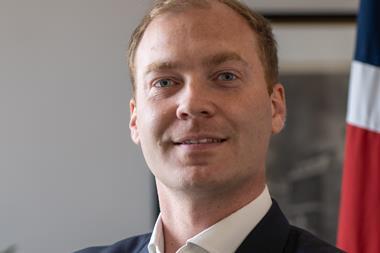Despite a growing number of corporate transactions in recent years, the real estate investment management industry is probably only at the early stages of consolidation. This was the message at the MIPIM trade fair in the south of France from two of the busiest M&A participants of recent months.
Speaking at INREV’s annual seminar at MIPIM in Cannes, Anna Kavanagh, CIO of Patrizia, was asked whether consolidation had reached a peak. “It’s probably just beginning,” she said. “A maturing industry always comes with consolidation and I think that is what we are seeing.”
Patrizia undertook three corporate transactions last year: acquiring Danish multi-manager business Sparinvest and German fund manager Triuva, and agreeing to take over UK firm Rockspring Property Investment Managers.
Patrizia has made a number of corporate acquisitions in recent years, but Kavanagh admitted that the company did not set out at the beginning of 2017 to make three more – but opportunities arose and each of the vendors had their own motivations to sell.
David Paine, the co-head of real estate of the recently merged business of Standard Life and Aberdeen Asset Management, agreed that more consolidation would follow.
Aberdeen Standard Investments has already said it will look to more corporate acquisitions in the future as it looks to expand its real estate offering globally, but Paine told delegates in Cannes that the real estate fund management industry was still “fragmented”. There are few truly global players, he said.
Both Kavanagh and Paine identified the middle ground as being “ripe” for consolidation. “It’s the midsize segment where the activity is taking place”, Kavanagh said, as managers diverge to become either global one-stop shops or niche specialists. It is a trend that IPE Real Assets reported on in 2015.
Regulatory pressures, technology risk and the need to provide a wide range of services were all encouraging mid-sized managers to become bigger. “Big doesn’t mean the right to survive, but it helps,” Paine said.
But Guido Verhoef, head of private real estate at PGGM, questioned the assumption that big was necessarily better. “You can become too big,” said Verhoef, who manages one of the Europe’s largest pension-fund investors.
The greater the size, the greater potential for conflicts of interests, he said. “Mutual dedication and the personal advice we get from the manager is key to us,” he said.
“If we lose this”, PGGM could always consider in-sourcing. There were no plans to do this, but “this is always an option” for a large investor like PGGM, he said.


















